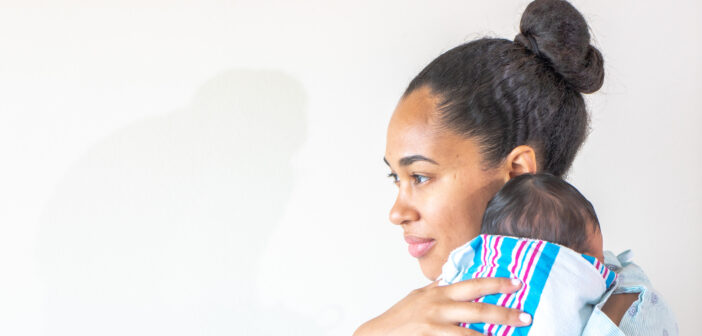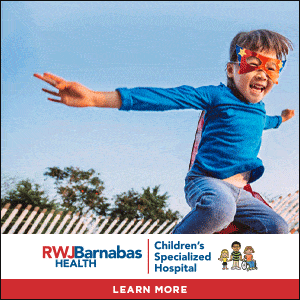As someone who unexpectedly lost my first baby due to unforeseen childbirth complications, maternal health and infant mortality are causes very close to my heart. Fortunately, our state has incredible advocacy groups (some I’m personally involved with) fighting to improve concerns surrounding maternal health for mom and baby. So I was honored to moderate the virtual Maternal Empowerment Roundtable on February 10th, organized by my friends at The 2 Degrees Foundation. It was a raw, impactful discussion about some of the alarming maternal health statistics (the US is ranked 55th in maternal deaths globally, New Jersey is ranked 47th in the nation) and the real stories and people behind those numbers. Not only did I learn how these groups are working towards supporting and empowering moms across the state, but also ways on how every NJMOM can support these efforts.
How these groups are improving maternal health in New Jersey
The discussion brought together a panel of passionate advocates devoted to making meaningful changes for all moms. With focuses like maternal mortality, infant and fetal mortality, maternal mental health, and racial and social justice, the goal was to discuss how to collaborate to empower moms throughout our state better. The opening remarks were from New Jersey First Lady Tammy Murphy and her initiative, Nurture NJ, which focuses on reducing infant and maternal mortality and ensuring equity in maternal care and treatment. During her talk, she shared some bleak statistics—a black mother in New Jersey is five times more likely to die than a white mother due to pregnancy complications, and a black baby is three times more likely to die than a white baby in their first year of life. Through her initiative, the First Lady is working with local maternal health and advocacy organizations to reduce maternal mortality in the state by 50% over five years and eliminate racial disparities in birth outcomes (sadly, NJ has the widest in the nation).
With that in mind, organizations like the Tara Hansen Foundation are crucial. Ryan Hansen started the foundation in honor of his wife Tara, who tragically died in 2011 six days after giving birth to their first child. During the panel, he spoke about what he wishes he knew then as a partner and how it’s shaped his work as an advocate. He shared what the group has done to empower expectant parents, including raising more than $200,000 in the name of patient safety for women and their families, working with hospitals, and co-creating the first Maternal Health Awareness Day.
Meanwhile, advocacy groups like Melinated Moms and Moms Rising are dedicated to racial justice issues, focusing on disparities in maternal mortality and overall access to quality care. Melinated Moms founder Jaye Wilson shared the ways her membership community and empowerment events equip moms of color with the tools to remove negative barriers associated with each phase of motherhood. Moms Rising Maternal Justice Campaign Director Nadia Hussain dove into the ongoing legislation (both at the federal and state level) to improve racial disparities and birth outcomes for women of color.
Alice Lu, Outreach Lead with 2020 Mom, weighed in on the mental health piece, sharing her struggle with perinatal anxiety and depression. It inspired her to help other moms going through similar battles and break the stigma surrounding them. Through 2020 Mom, Alice has helped advance legislation supporting screening, education, and access to treatment for mothers suffering from perinatal mood disorders. Her work is ongoing, but sadly, the pandemic has underscored the crucial need for maternal mental health care.
Next, the organizers, 2 Degrees Foundation co-founders Debbie Vijayvergiya and Stacey Dinburg spoke about pregnancy and infant loss. Debbie, Stacey, and I each shared our personal stories—we talked about the pain of losing our daughters, and despite how common infant loss is, it’s still under-researched and under-funded in this country. 2 Degrees Foundation raises money for stillbirth research, spreads awareness, and empowers expectant moms to advocate for themselves and their babies. Debbie also has been instrumental in getting The Autumn Joy Stillbirth Research and Dignity Act (named after her daughter) passed. The law requires the state to establish policies and procedures to ensure every family experiencing stillbirth is treated with grace and sensitivity.
On that same note, Jill Wodnick of Speaking of Birth dove into the role doulas play in empowering moms during the life-changing experience of giving birth. Jill is a Lamaze childbirth educator and policy expert working at Montclair State University on improving maternity care and has worked on the NurtureNJ initiative. She discussed how vital birth support is in advocating for mothers during labor and delivery and how, in the current COVID world, it’s crucial moms know they are allowed to have a doula with them in the hospital.
Lastly, Dr. Barbara Ostfeld with the SIDS Center of New Jersey and Rutgers Robert Wood Johnson Medical School discussed the tremendous progress made in reducing Sudden Unexpected Infant Deaths (SIDS) in NJ. Through safe sleep and other education efforts over the past 30 years, SIDS deaths have been cut in half and among the lowest rates in the US. And yet, despite declines, SIDS remains the leading cause of post-neonatal infant mortality and profoundly affects mothers in every aspect of their lives. It’s yet another maternal health issue that requires continued education and awareness efforts so that moms are informed and empowered.
There’s a long way to go, and we can all help
With all the progress made, the grim numbers and personal stories show us there is still a long way to go. A common theme I heard was sharing our experiences empowers us all. It helps raise awareness, gives us support, and makes a difference in reducing and preventing losses, tragedies, and mistreatment. So it’s up to us to continue to speak our truths about our experiences out loud. It’s how we’re going to break stigmas surrounding pregnancy loss, infant loss, and perinatal mood disorders. I also learned about the power of numbers—how we can fight for one another by demanding equitable care and treatment for all mothers and babies. Because when mothers are healthy—physically, mentally, emotionally—society as a whole rises.
Want to get involved in helping all NJMOMS? You can check out each of these organizations and see more about the work they’re doing on their websites:
2 Degrees Foundation
Tara Hansen Foundation
Melinated Moms
Moms Rising
2020 Mom
Speaking of Birth
SIDS Center of New Jersey
Nurture NJ








